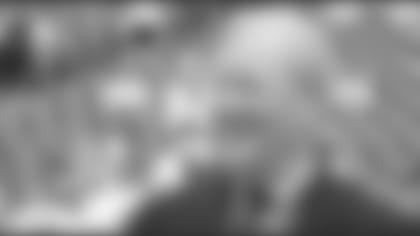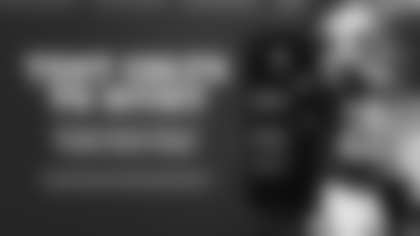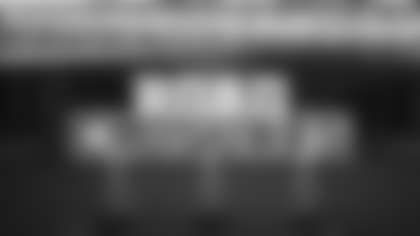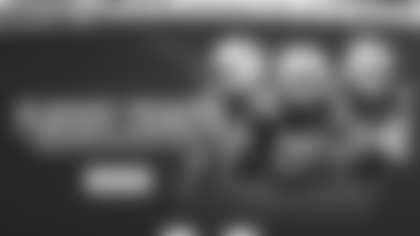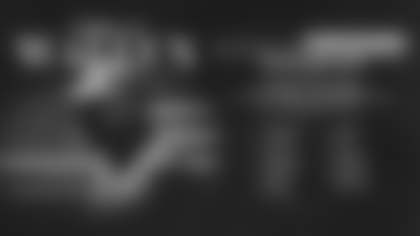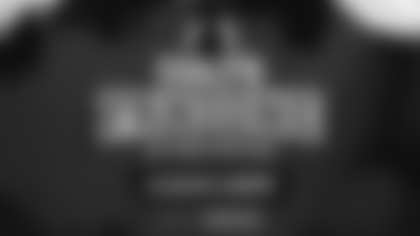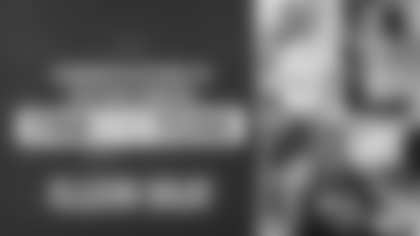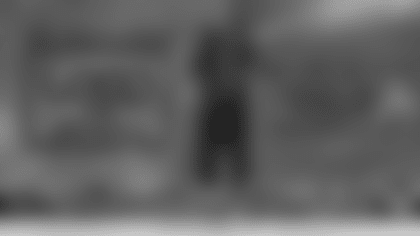*End of 2010 Season
Bill Polian, in his 13th season as Colts president, has a resume unique in the NFL. The only man to win NFL Executive of the Year six times, Polian in the 1980s built the Buffalo Bills into a four-time Super Bowl participant. In the mid-1990s, he built the expansion Carolina Panthers into a team that made the NFC Championship Game in its second season, 1996. Since joining Indianapolis in 1998, he built the Colts from a 3-13 team in 1997 and 1998 into one that has made the playoffs 11 of the last 12 seasons, including AFC Championship Game appearances after the 2003, 2006 and 2009 seasons, AFC South titles in 2003, 2004, 2005, 2006, 2007, 2009 and 2010, Super Bowl appearances following the 2006 and 2009 seasons and a Super Bowl championship following the 2006 season. Each week during the season, in The Polian Corner, Polian and Colts.com will discuss issues pertinent to the Colts and the rest of the NFL.*
Q: A 17-16 loss to the New York Jets in an AFC Wild Card playoff game Saturday ended the Colts' season. What was your assessment?A: It was pretty straightforward. God has a way of telling you football games aren't very important. The tragedy in Arizona overshadows everything and makes you realize the importance of a football game and you lost it and it was high stakes, but it isn't the end of a 10-year-old's life, which occurred with (former Philadelphia Phillies Manager) Dallas Green's granddaughter and so many others. I felt almost ashamed of myself for being as upset as I was for losing a ballgame. The Lord has a way of helping you refocus on those things. That said, we saw very little on the tape that we didn't see Saturday night. From an offensive standpoint, for our offense, it was a game plan that we've seen before. Many people have used it. It (the Jets' approach) was nothing exotic, nothing we didn't anticipate and nothing we hadn't seen before. Part of the reason we were sluggish in the first quarter was we expected a lot more exotic stuff than we got. We were adjusting to it. That was one thing. Obviously, in the second half we picked it up, and we did the things that were required to win a football game. I thought (quarterback) Peyton (Manning) had a great night in terms of managing the game and making judicious throws. It's not very often you have a ballgame where you say, 'There's really only one throw I'd like back.' There were probably two in that ballgame. They dropped a coverage on (wide receiver) Pierre (Garcon). I think it was in the second quarter. We would have had a touchdown. He didn't see it in time. He went to (wide receiver) Blair (White) and it actually ended up being an incompletion. Then, there was the sprint-out throw to Blair, which is a tough throw, on the last play prior to the field goal. If that ball is perfect, it's going to be a completion. It was down low and Blair couldn't hold onto it. That was unfortunate, because we would have gotten the first down, run out the clock and kicked a field goal and gone home. Other than that, (it was) a perfect night. It was great, great game management by Peyton and by (Offensive Coordinator) Clyde (Christensen). Clyde called a phenomenal game, given the way they were playing, what they were taking away from us. We made high-percentage throws. We ran the ball very, very well. We didn't run for big yardage, but we ran for good yardage and very important yardage. In the second half, it paid off for us. Defensively, I don't know that we're capable of playing any better than we played, especially given all the injuries. That's true on offense, too. You don't have (tight end) Dallas Clark. You don't have (wide receiver) Austin Collie. You don't have (wide receiver) Anthony Gonzalez. That's a pretty big loss factor there. I would say, given the fact that those guys were out, we played almost flawlessly offensively. (Right tackle) Jeff Linkenbach was just tremendous and the offensive line, I thought, did a pretty good job overall. (Left tackle) Charlie (Johnson) had a very, very good night. The two tackles were superb. Defensively, I don't think we can play much better than we played. The ball didn't necessarily bounce our way. We got a couple of bounce-offs that we caused with pressure that didn't bounce our way, but that has been how it has been all season. We're very far down in turnovers, and that has been the way it is. Those things just happen from season to season. I thought our tackling was great. Our energy was great, our toughness and our physicalness. To get two stops after the roughing the punter – to get a stop before that with the game on the line, have that occur and give them a life, which is inexcusable, and to turn around and get a stop again is almost unbelievable. You would almost say, 'That would never happen.' If you're in their shoes and they lost that game, you'd say, 'How can that happen? How can they stop us twice in a row in that situation.' And we did. You can't ask anymore from the defense than they gave. So, it boils down to about two kickoff returns worth about 88 yards, which we didn't cover. It's that simple. Bill Parcells often says every 10 yards is worth one point. We gave them eight points, nine points basically, in terms of field position by our kickoff coverage. Both cases, it was one guy getting out of his lane, not maintaining lane discipline. (Jets cornerback/returner Antonio) Cromartie is a great straight-ahead runner and if you maintain lane discipline and don't give him a lane, he's going to change direction, which is not a strength. That lost the game for us, pure and simple. I won't sugarcoat it or make excuses. Kickoff coverage lost the game for us. Fortunately, the defense bailed out the running-into-the-kicker penalty, but when you give up a 46-yard kickoff return after you've just kicked a 50-yard field goal to put your defense in an absolutely untenable position, then needing only to go essentially 35 yards to kick a field goal, what are you going to call in that situation? What can you possibly do? How many times can you go to the well? I've always believed kickoff returns are about 70 percent effort and want-to, 10 percent strategy and about 20 percent technique. You can argue the strategy and I can go either way there, but having elected to kick it deep, you have to cover it. You have to stay in your lane. You have to bully up. You have to knock them down. You have to know it's Cromartie. You have to make them change direction, and everybody has to go to the ball. If you give them the benefit of the doubt and say the ball comes out to the 30, now they have to go at minimum 60 yards in 40 seconds. That's the difference in the game, pure and simple. It hurts like the devil. It's one of those that will take a long time getting over, because when you play as well as we played, and when you manage the game as well as we managed it with as many people missing as we had, and you had the defense rise up and make two stops under the most difficult of conditions and have to go out on the field and do two stops back-to-back with the game on the line, and then come down the field and kick a 50-yard field goal to win the game and then you don't win it? Boy, oh boy, oh boy, it's really hard to swallow. It's there. It isn't changing. There's nothing we can do about it. I told many of our young players after the game and I told our entire squad Sunday, take from this – as hurtful as it is – this lesson: Nothing that is written or said about any game that you play in, much less of this magnitude, by anyone – pundit, coach, writer, doesn't matter – nothing means anything. It means zero. Preparation and execution are what count. Second-guessing doesn't matter, first-guessing, prognostication. Statements about how important the game is or isn't. It's all absolutely meaningless. It's about preparation, knowing who the return guy is, knowing what his tendencies are. Then, it's about execution. Get out there and execute. Know what you have to do when the pressure is greatest. Unfortunately we didn't in one phase.
Q: Talk a bit more about the return. What was most frustrating?
A: You know what Cromartie can do. He needs a running lane. It was the same as last week with (Titans running back) Chris Johnson. You know that Chris Johnson needs a running lane. If you don't get Chris Johnson a running lane, it's very much harder for him to make big plays. Cromartie needs a lane. Don't give him a lane. As you line up as a player, the first thing you say is, 'This is Cromartie. He needs a lane. I'm going to come down. I'm going to bully up on my man. I'm going to make sure I make contact with my blocker. I'm going to hold the ground. I'm going to make him change direction. I'm going to fly to the ball if I'm on the offside.' You have to know who is back there. It's not an X and an O. It's a guy.
Q: Talk about the decision to kick away versus a shorter kick in that situation . . .
A: I think it's 50-50. I think it's personal preference. It's what the kicker feels comfortable with at that particular time of the game – all of that enters in the decision. Knowing what you know now, of course you kick it on the ground. By the same token, Green Bay did that against New England (late in the season) in the very same situation and had it returned (nearly) for a touchdown. Those things can go awry. The fact of the matter is, you have to cover the kickoff in that situation.
Q: How will the labor situation influence the early part of the off-season?
A: First of all, the situation is very, very muddled. Between now and March 5, when the Collective Bargaining Agreement expires, we'll be doing everything we can – by we, I mean the NFL Management Council -- to try to get an agreement. I expect that the union will do the same. The Commissioner (Roger Goodell) has pointed out that he is going to bend every effort to do that. If there is no agreement after March 5, any number of situations come into play, a lockout being one of them. If you had a lockout, you basically have no football activity whatsoever, until such time as it were to end. That's only one possibility. There are other possibilities as well, and they are too numerous to get into. Many involve legalities that I am not capable of discussing. The bottom line is that between now and March 5 everybody involved is going to do his best to get an agreement. If we don't get an agreement, we know the following: that at some point, we will play football. I believe that it will be at some point in 2011. It's up to us as an organization, and it's up to every player, to be ready physically, mentally and emotionally when the time comes to play football. Let's hope it's normal training camp, normal OTAs and everything is as it should be. If it isn't, we're still going to play football in 2011. I'm convinced of that. The National Football League isn't going away, and I don't think the National Football League Players Association wants it to go away. The bottom line is we're going to play football and we need to be ready as an organization. Each individual player needs to be ready to play whenever that time may come.
Q: How important is it to have someone like center Jeff Saturday as the player representative?
A: It's very helpful, because he is clued into the union's position. Because of the committee I serve on, I know a little about management's position and so we have an opportunity to exchange ideas and talk about things. While we don't do it even on a weekly basis, it's nice to be able to have that dialogue, especially with respect to your day-to-day operations. If there were a bump in the road in terms of trying to operate our club in conjunction with things the NFLPA may want, Jeff and I can discuss it and solve any problems. That's really helpful.
Q: Will running back Dominic Rhodes be re-signed?
A: We'd like to re-sign him. The question is, what will the new Collective Bargaining Agreement contain with respect to veterans of his caliber? The issue of how much is guaranteed, etc., etc., is an issue I have no answer for at this point in time. I can't tell you specifically that we would or wouldn't, but we would very much like to, so we'll see how it goes.
Q: What was your opinion of the timeout called by the Colts at the end of the game?
A: I've had a number of people ask me about the timeout, and for the life of me, I can't figure out why. Here's the situation. At 2nd-and-1 on the Indianapolis 45, with 40 seconds to go in the game, (quarterback Mark) Sanchez passed to (wide receiver) Santonio Holmes at the 34. Then, on 1st-and-10 on our 34, (running back LaDainian) Tomlinson ran up the middle for two yards. That was with 36 seconds left. We took a timeout ostensibly to be sure we were in the right defense. What made anybody think if we didn't take the timeout, they weren't going to throw a pass, stop the clock and use the timeout as necessary to kick the field goal? To me, it's a moot point. I'd rather be in the right defense when your back is up against the wall and the only way, basically, that you can win the game is with a sack/fumble or an interception or a total miscue such as occurred the previous week in the very same situation against Tennessee. I don't understand what the issue is there. To me, it only allowed us to get into the right defense and on the subsequent play, they went from the shotgun and threw a pass to (wide receiver) Braylon Edwards, which he made a great play on at the 14 that essentially cinched the game. I'm at a loss to explain why it's an issue. I certainly didn't disagree with it. I understood what we were trying to do. In that place, you could only play defense. The kickoff return – I keep harping on this – tilted the field 100 degrees in their favor. Our defense that had gotten six successive plays where they had stopped them from getting a first down now is in a position where we really don't know what to call. They're 30 yards from a field goal with 50 seconds left in the game and one timeout left. That's an untenable situation for the defense, to say nothing of the fact they had been out there a long time – all night. That was the only benefit the Jets got from their offensive game plan. As it turned out, because we didn't cover the kickoff, our defense had to go back out there on the field in a very untenable situation. From my perspective, the kickoff return changed everything. If we stop him at the 30, inside the 30, that's a completely different football game.
Q: It seemed the defensive backs didn't re-route the Jets' receivers as much in the second half, particularly on the late pass to Edwards that set up the field goal . . .
A: You re-route when you're in Cover 2, with two deep safeties behind the corners. Re-routing means you bump the receiver and try to bump him into the middle of the field. You're funneling your receivers inside to the safeties. When we're in Cover 4 – which is basically a four-deep zone – or a Cover 2, we're re-routing. When you're in Cover 3 or Cover 1 – Cover 1 being man-to-man and Cover 3 is three-deep zone – you don't re-route. If you press, you try to press the guy inside out to use the sideline to your advantage. Our defensive back did exactly that and the ball was thrown high and outside and Edwards made an incredible catch, and an even better move to stay in bounds. You could not fault (cornerback) Jacob Lacey one iota for that play. It was a tremendous play by Edwards. Those things are going to happen. I repeat: no kickoff return, probably no play like that.
Q: The fact that you've seen so many young players – how will that impact your draft this off-season?
A: We've had an opportunity to look at a lot of players. For example, Justin Tryon obviously showed he is a very capable cornerback, so that's a real plus. You can't have enough cornerbacks, as we found out this year. (Safety) Aaron Francisco proved again that he's a valuable, valuable contributor to this football team and we're going to do everything we can to try to get him back. Jeff Linkenbach came in Saturday, in the biggest game of the year, and played right tackle, where he hadn't played before. You didn't know he was out there, which means he played well. It was business as usual. We know we can count on him on the offensive line as a tackle. That's a real plus. That's a gigantic plus. In (linebacker) Kavell Conner, I think you're looking at the next David Thornton. I'm putting him in pretty high cotton there, but this guy is a football player. We already know (linebacker) Pat Angerer is a football player. He can play 'Sam.' He can play 'Mike.' I hope (middle linebacker) Gary (Brackett) plays a long time, but whenever he's ready to hang it up, Pat's ready to step in, obviously. Those are two guys who we thought were good football players, but who turned out to be really good. (Defensive tackle) Fili Moala exceeded our expectations. I know a lot of people were on him. A lot of pundits were saying he was a failed draft choice last year. Well, that is not the case, as he proved this year. He was our best defensive tackle, and the arrow is nothing but up for him. He's just going to get better and better. Like most rookie defensive linemen, the adjustment to the National Football League is a gigantic adjustment. (Former Buffalo Bills defensive end) Bruce Smith took three years to develop into a Hall of Famer. Fili's done a tremendous job and the sky is the limit, really, for him, I think. Those are a few guys who really have shown us they can play. There are others I'm missing. We knew (tight end) Jacob Tamme. The pundits didn't know Jacob Tamme. There was absolutely no question he was going to come in and play well. (Wide receiver) Blair White – I said at the end of mini-camp, 'Keep an eye on Blair White; I think he's going to do something good here.' He exceeded our expectations and will be an integral part of our receiving group next year. Those are guys who got an opportunity to play and will benefit from it and will help give us a lot of depth as we approach next season.
Q: What are the chances of the Colts picking up a stud player in the draft next season, or in free agency?
A: We don't know what free agency is going to bring, because of the unsettled labor situation. We do know that there will be a draft. I believe we'll be drafting 22nd. At 22, we are not going to get a 'stud' player. We are going to get a very good quality player, but we're not going to get somebody like (Detroit Lions defensive tackle) Ndamukong Suh or someone of that nature, because they go very much higher. Would we move up? That's entirely possible. Number 22 is a good position to be moving from, either up or down. What we will get if we stay there is a high-quality player who can come in. Now, if he's an offensive or defensive lineman, the likelihood is that he does not make an impact right away, that he becomes like Fili Moala and takes a year and becomes a very, very good player. That will be fine by us. If your definition of a 'stud' player is Suh or (St. Louis Rams quarterback) Sam Bradford, we're not going to get that person at number 22, but I guarantee you we will get a good player who will come in and be a major contributor.
Q: Will Taj Smith be kept?
A: He made great strides. Bad mistake the other night, but you learn from it and move on. I'm hopeful that he will continue to develop. He's a terrific guy. He is a good player. He has great speed. We need to find a better, bigger role for him on special teams. Kickoff coverage probably isn't one of them because of his size, but he's a valuable contributor. We look forward to having him back. He's not a return guy. You'd think that he would be, because of his speed, but he really does not have a knack for it. Return people generally have a knack for it, and they're usually pretty easy to spot. We just haven't had a lot of luck in terms of keeping them healthy.
Q: How come the Colts never seem to open the retractable roof?
A: There is no drainage on the field, and that's just a function of the way it was constructed. To use the description given to me by one of the people who operate it, it is, 'An indoor stadium with a roof that opens as opposed to an outdoor stadium with a roof that closes.' The difference is there is no drainage on the field, so if you have any chance whatsoever of rain, snow, ice, what have you, you have to close the roof. In certain situations early in the season – and you learn these things through trial and error – when the roof is open there is a segment of people in the upper deck who have trouble with the sun. That becomes an issue. We've kept the roof open in those situations, but it is somewhat difficult for those folks and I feel for them. The bottom line is whenever there's a threat of precipitation, we have to close it in order to keep the field dry and then, of course, the other night when the temperature is in the low 20s or teens, it really has to be closed.
Q: Blair White never had fielded punts regularly, yet he did a good job this season.
A: You couldn't tell it by me. When you watched him field punts in practice, it's a little like a baseball outfielder. When you hit a fungo to a natural outfielder, you say, 'Oh, yeah. He's an outfielder. He knows how to turn the right way. He sees the ball come off the bat. He puts his hands in the right place.' You might hit the same fungo shot to another guy and it would hit him in the head. People have a knack for it and Blair's one of those. As we learn better how to exploit his talents, which is the ability to go north and south, his return yardage on punts will increase pretty dramatically. It's a function of scheming for him. But he is absolutely flawless in handling the ball. His judgment is great. He's going to become an even better return man. We've solved that problem. As long as he is healthy, he's a very good punt returner.
Q: Moving forward, how are you handling the uncertainty of the off-season . . .
A: We're saying business as usual. We're going through our process of player evaluation. We're going through our process of making sure we have our coaching staff filled out in the proper manner. We're beginning to make our off-season plans in terms of player acquisition and things of that nature. We're starting the draft process, and we're presuming that everything is business as usual. On or about March 5, we'll know what the next step may or may not be. Until then, it's full speed ahead without regard to any labor issues or things of that nature. Anything's possible and conjecturing at this point makes little sense. Just keep your nose to the grindstone and let's presume we're playing.



